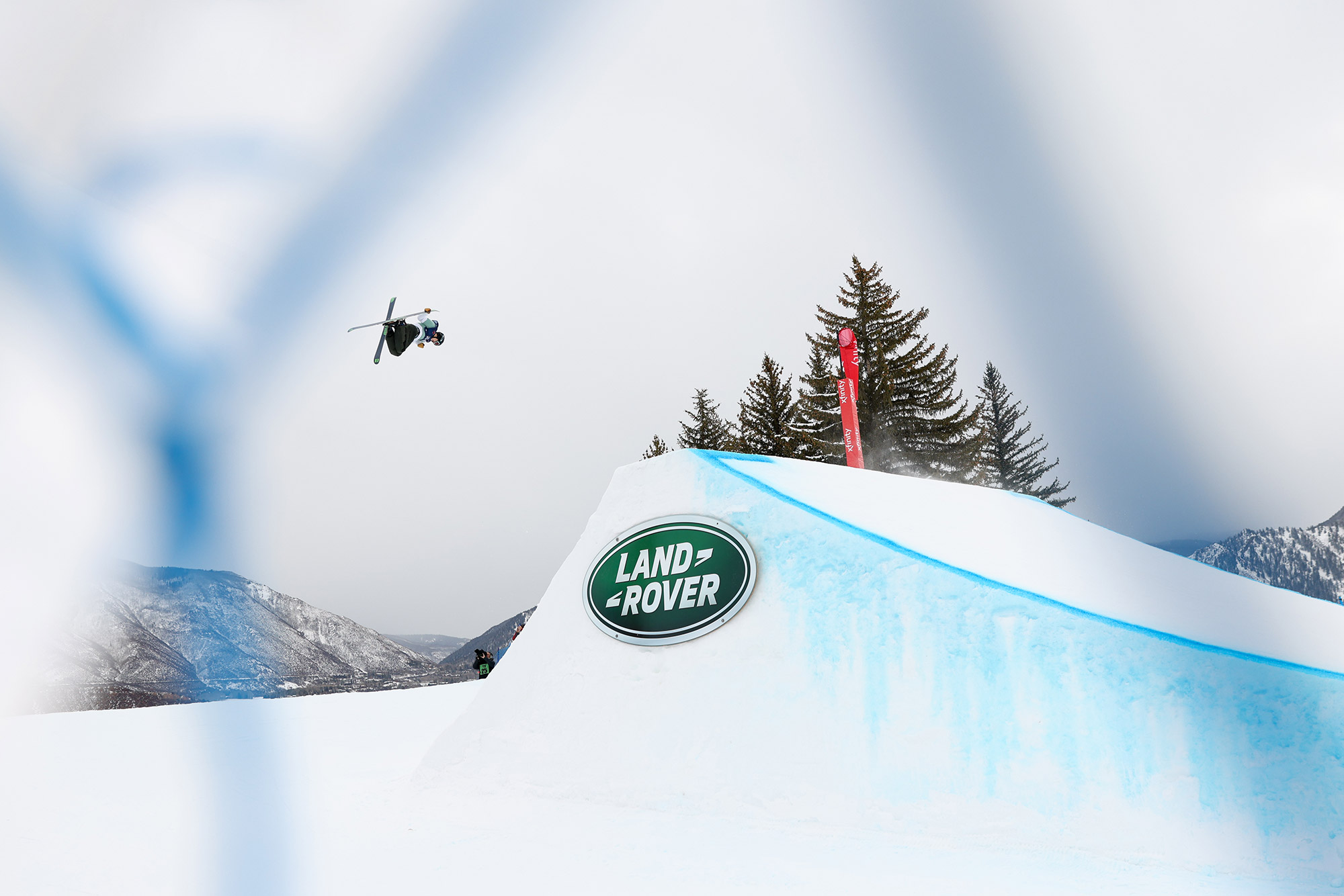
Event News
Highlight2021 World Championships Big Air: Recap, Results, Winning Tricks
After halfpipe and slopestyle finals the weekend before, it was time for the final throwdown: the Big Air finals of the 2021 FIS Freestyle World Championships on Tuesday, March 16. And my oh my, what a throwdown it was.
The format was simple: three jumps, the best two count, athletes need to spin 2 different ways, men and women’s runs alternating, judging based on DEAL (Difficulty, Execution, Amplitude, Landing). Are you paying attention, X Games? Turns out, it’s really not that hard to run a reasonable contest after all.
Women: The Russian Surprise
The day kicked off with the women’s first run, under overcast skis and with sub-optimal visibility for the athletes. But the level was high nonetheless, and it quickly became clear that stomping at least one double cork clean would be necessary for a podium finish.
After Lana Prusakova stomped a picturesque rightside cork 900 tail, Sandra Eie kicked off the double cork festival, bringing a dub 10 safety clean to her feet. She fared better than Eileen Gu and Sarah Hoefflin, who both crashed on their own double 10 attempts—one forward, one switch. Meanwhile, Megan Oldham opted for a switch 10 mute, but missed the grab.
Then the surprises began: Russian skier Anastasia Tatalina, practically an unknown on the scene and the only competitor skiing without goggles, laid down a perfect leftside double cork 1260 mute as clean as they come, vaulting into the lead with a massive score of 93.00. Whatever they’re putting in the water in Moscow, it must be working.
The oldest competitor in the field, Italy’s Silvia Bertagna looked for a double 12 of her own, but went down hard on the landing. And defending Big Air world champ Tess Ledeux looked to send her own massive double 12, but went too deep and couldn’t stick it—leaving Sandra Eie between a Russian sandwich in the top three after the first jump.
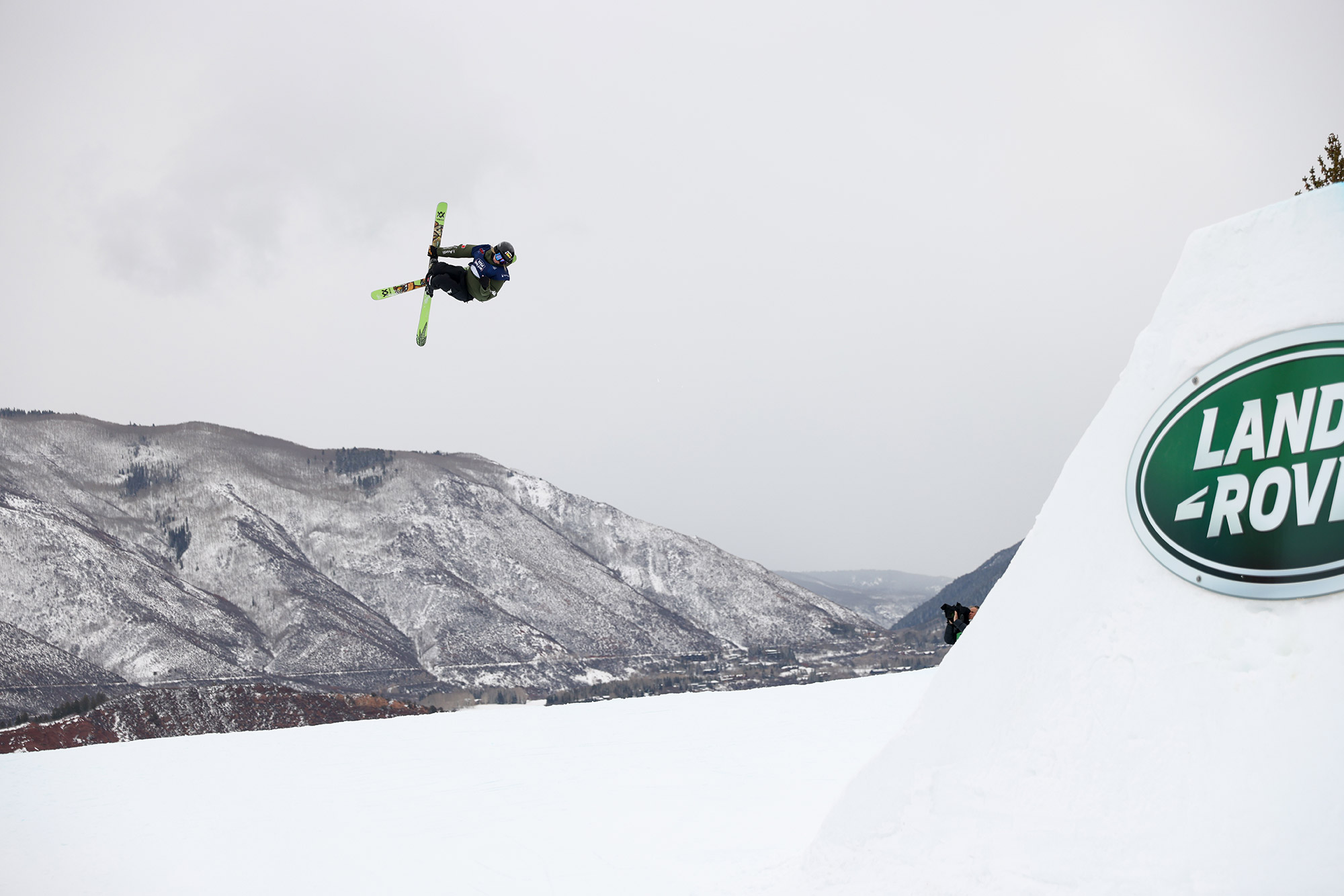
Silvia Bertagna may have had trouble stomping her dub 12, but definitely had the best mute grab tweak in the field.
In the second round, Prusakova looked to join the double cork party but crashed hard on a dub 12, her knee flexing at an unnatural angle. Sandra Eie opted for a switch 10, reaching for but not quite getting the japan grab, and Eileen Gu made good on her left double cork 1080 japan to post a solid score of 87.25. Sarah Hoefflin couldn’t land her switch dub 10 for a second try, eliminating her from the podium race, while Megan Oldham bagged a clean double cork 12 mute for the second-highest score of the day.
But Anastasia Tatalina had another trick up her sleeve: a rightside double cork 12 mute, a perfect mirror of her first trick, which she stomped clean as could be for a score of 91.5 and a dominating lead, becoming the first woman to land both left and right double cork 12s in a contest. Bertagna and Ledeux followed with double cork 12s of their own—Silvia going short and somehow holding on to the landing, Ledeux going deep and stomping clean for a big score and a shot at the podium.
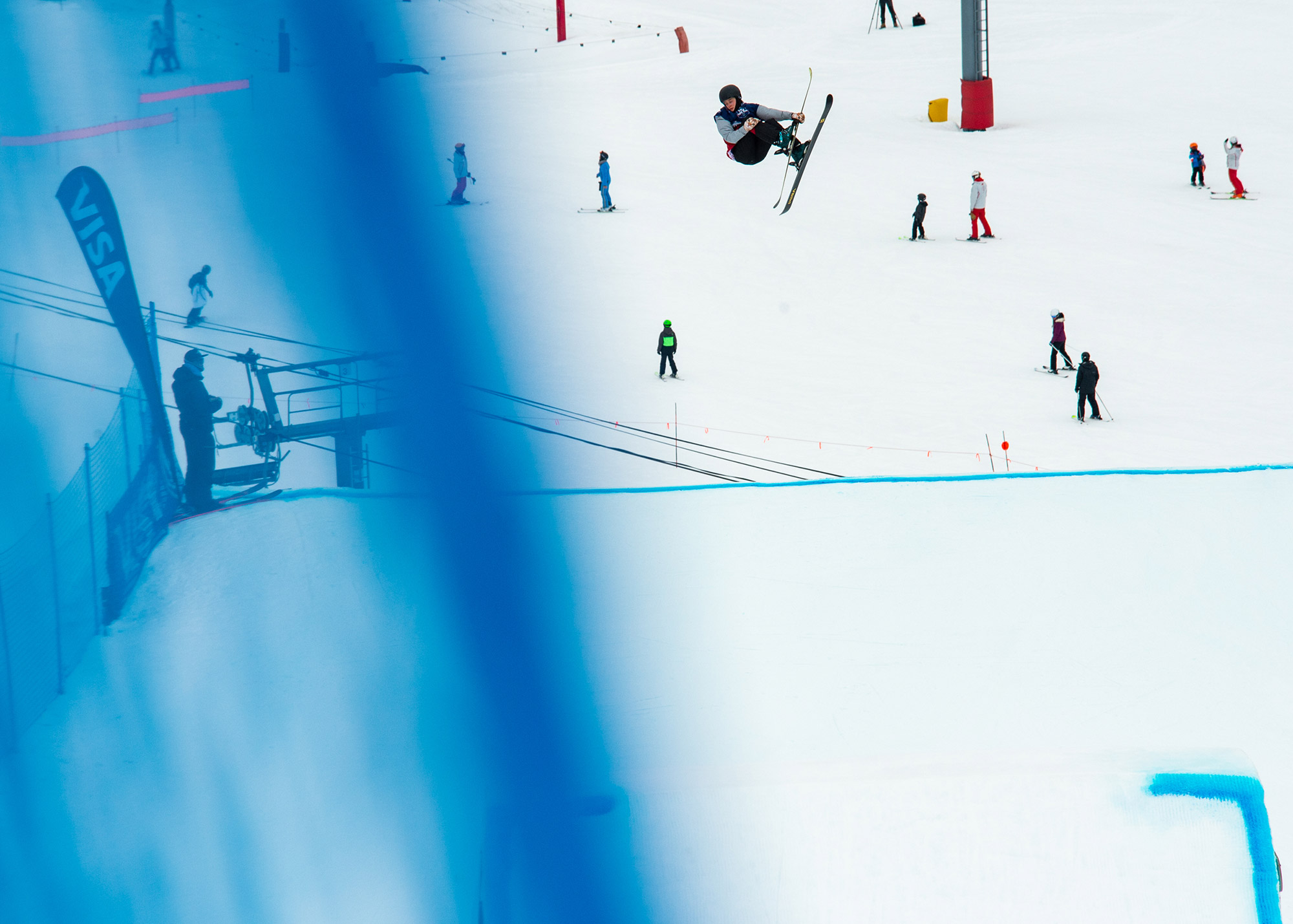
After stomping a leftside dub 12 clean, Anastasia Tatalina shocked the field by sending the same trick in a mirror image to the right.
With Tatalina’s mirror dub 12s holding a practical lock on the gold, the third round was a contest to decide the silver and bronze medals. Eileen Gu managed to land a rightside double cork 12 of her own, albeit a bit unsteadily, to join the “two different doubles” club. Defending champ Tess Ledeux came up short on a switch 10 attempt, crashing out of the finals.
Then came the second surprise of the day: Lana Prusakova, back after a hard crash on her second jump, stomped her own dub 12 mute cleanly, boosting past Eileen Gu into second place and securing an unthinkable result: two Russians at the top of the Big Air podium.
The women’s Big Air field has certainly come a long way, with every competitor packing at least one double cork. Even so, it was just a tad repetitive to see dub 12 mute after dub 12 mute—even if that’s still a major improvement over previous contests. As the field continues to progress, we’ll look forward to seeing more unique tricks and grabs from the women.
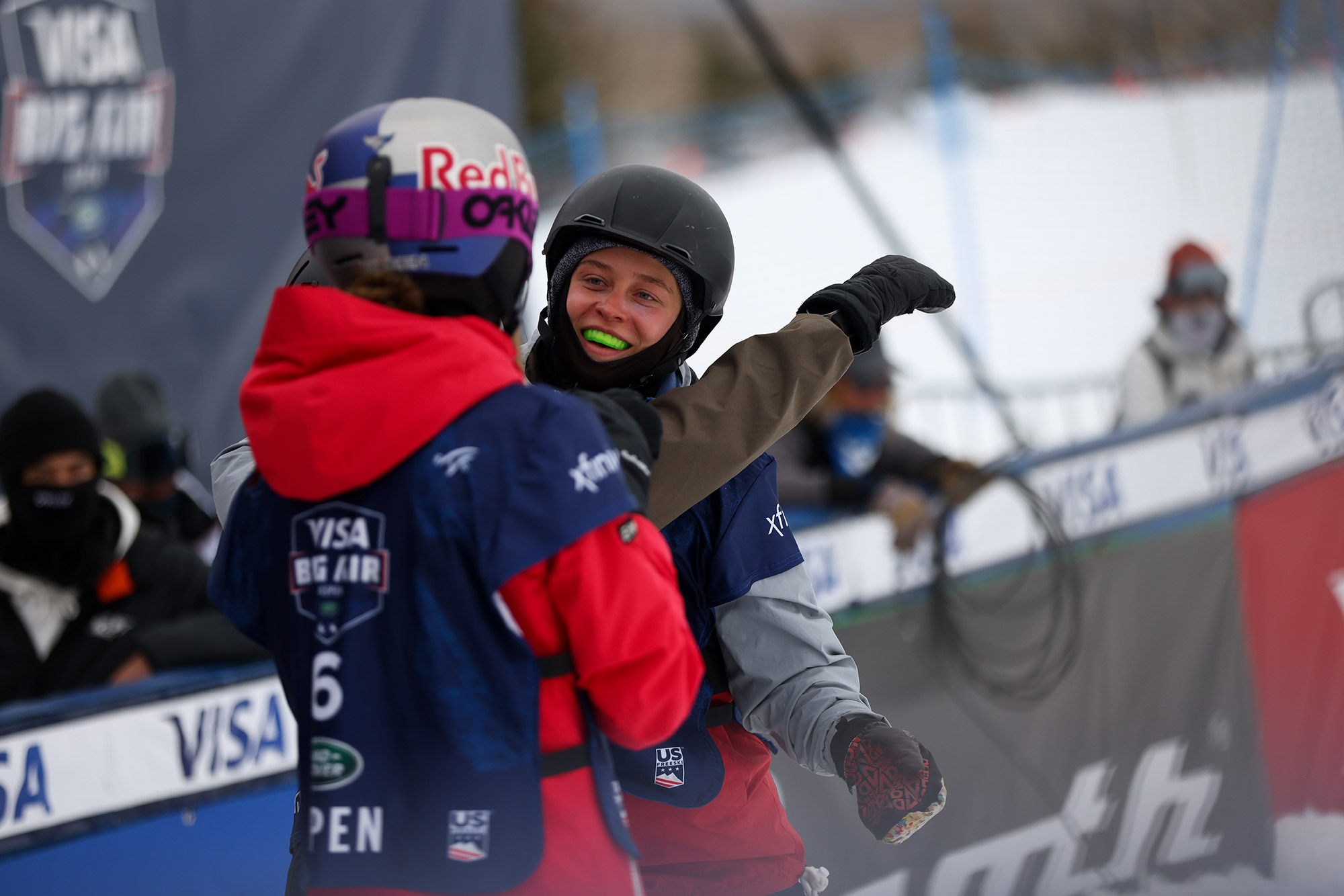
Your surprise 2021 Big Air world champion: Anastasia Tatalina!
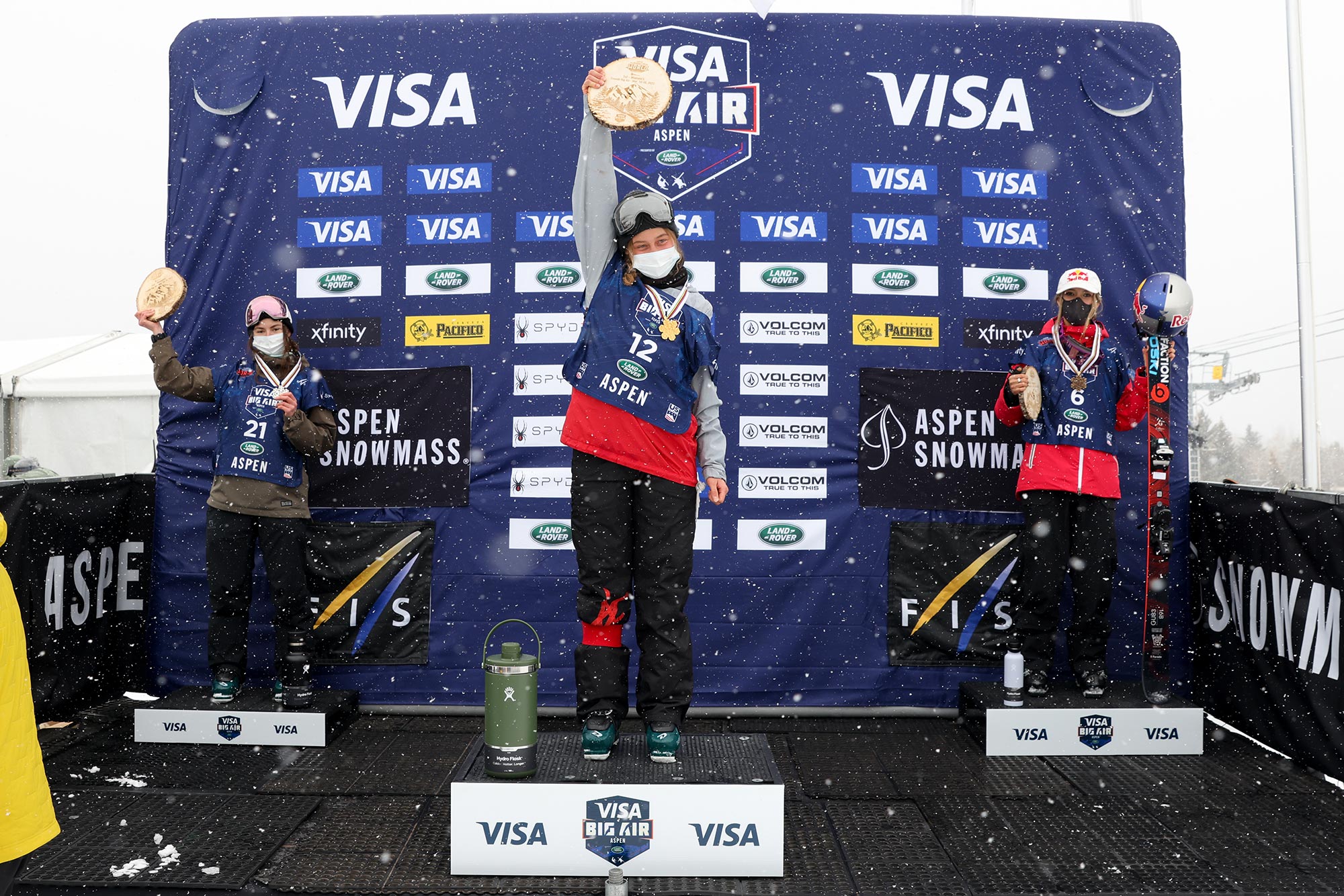
The women´s Big Air podium: Anastasia Tatalina, Lana Prusakova, Eileen Gu.
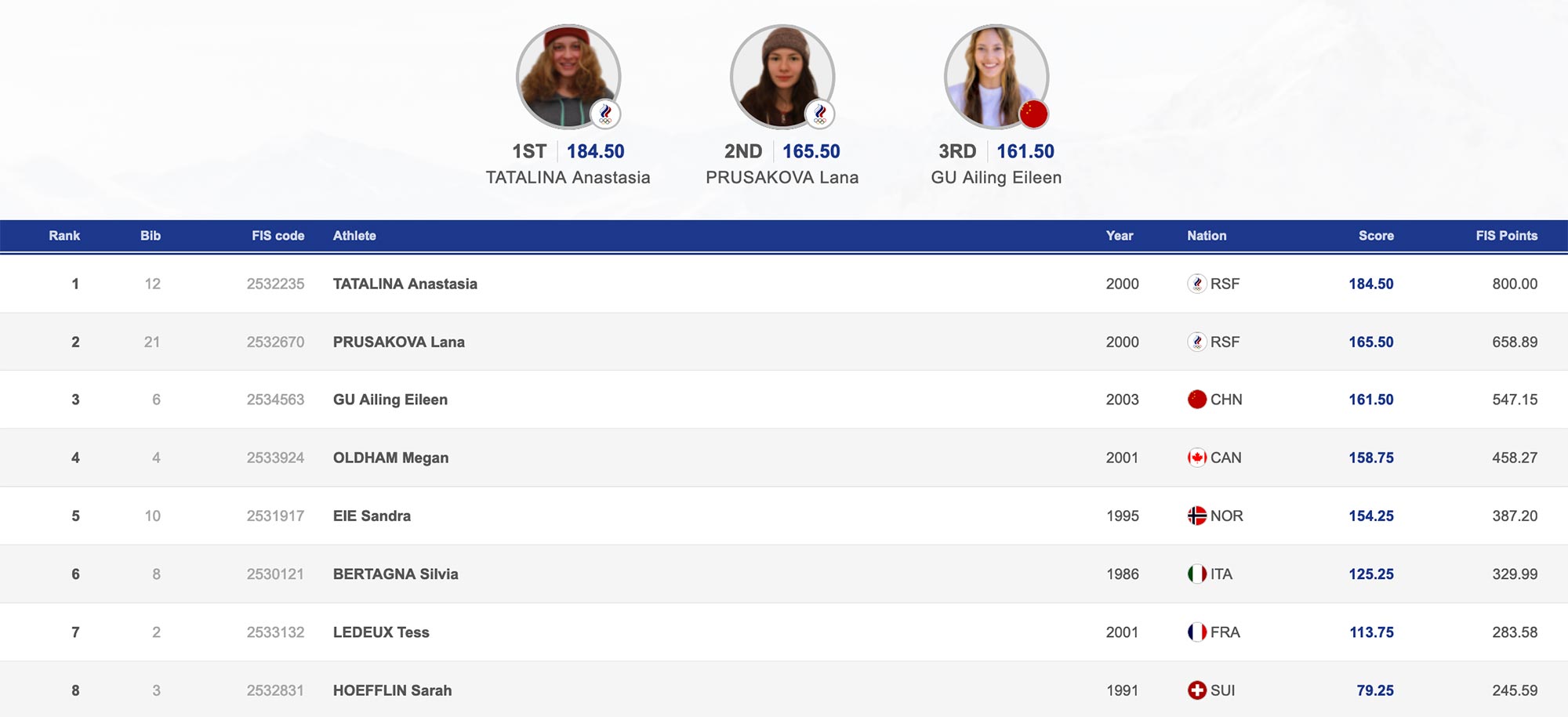
Gold: Anastasia Tatalina

Silver: Lana Prusakova

Bronze: Eileen Gu

Men: A Throwdown for the Ages
On the subject of unique tricks, Thibault Magnin kicked off the men’s contest with a competition first: a switch triple cork 10 that he unfortunately couldn’t land clean. Birthday boy Sebastian Schjerve (he turned 21) sent a double cork 1800 tail but put a hand down, before Canadian up-and-comer Edouard Therriault kicked things up a notch with a massive triple cork 16, sent deep, stomped clean and grabbed with guitar (double mute) for the first big score of the day. It wouldn't be the last.
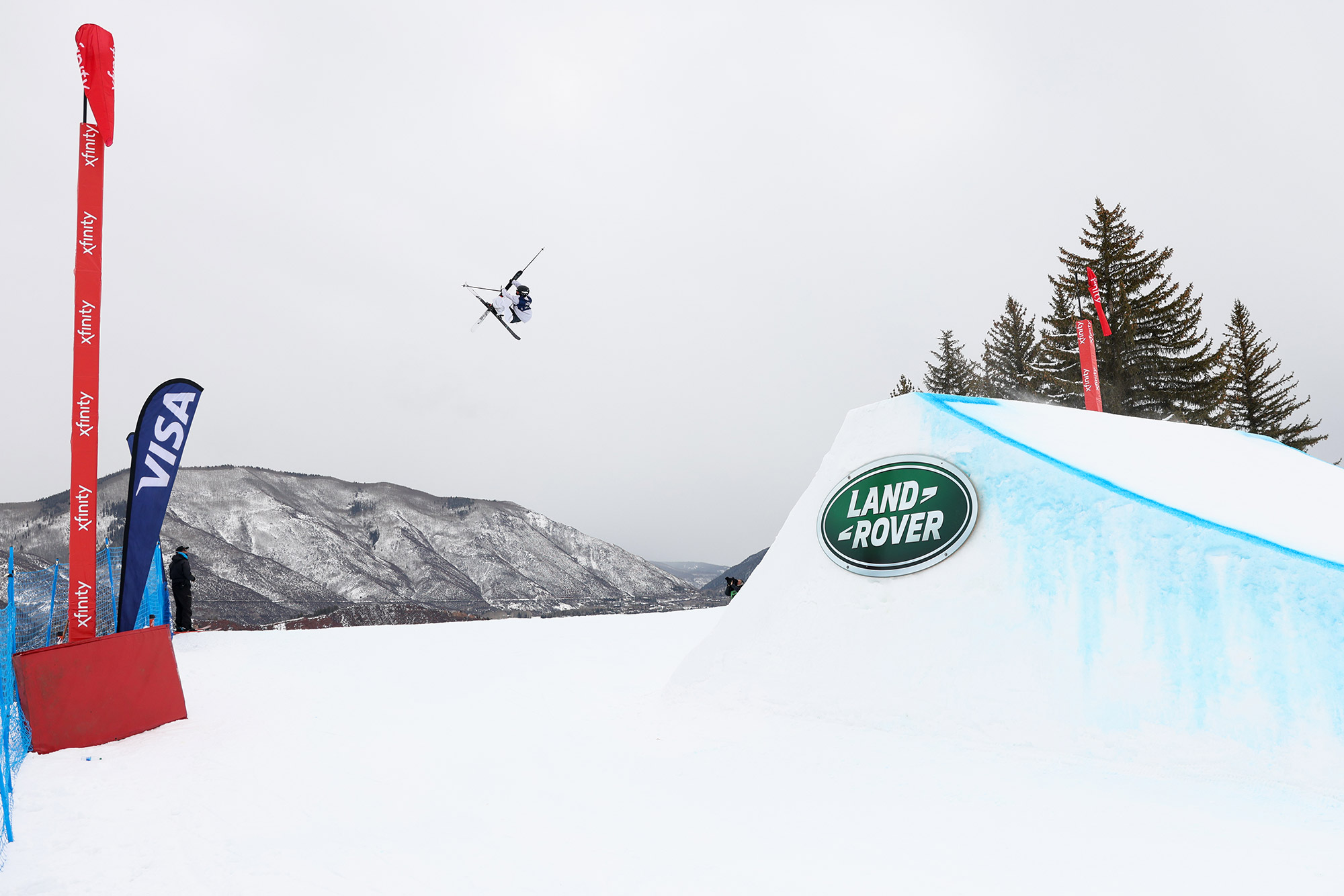
Edouard Therriault´s triple cork 16 guitar was the first of many highlights in the men´s contest.
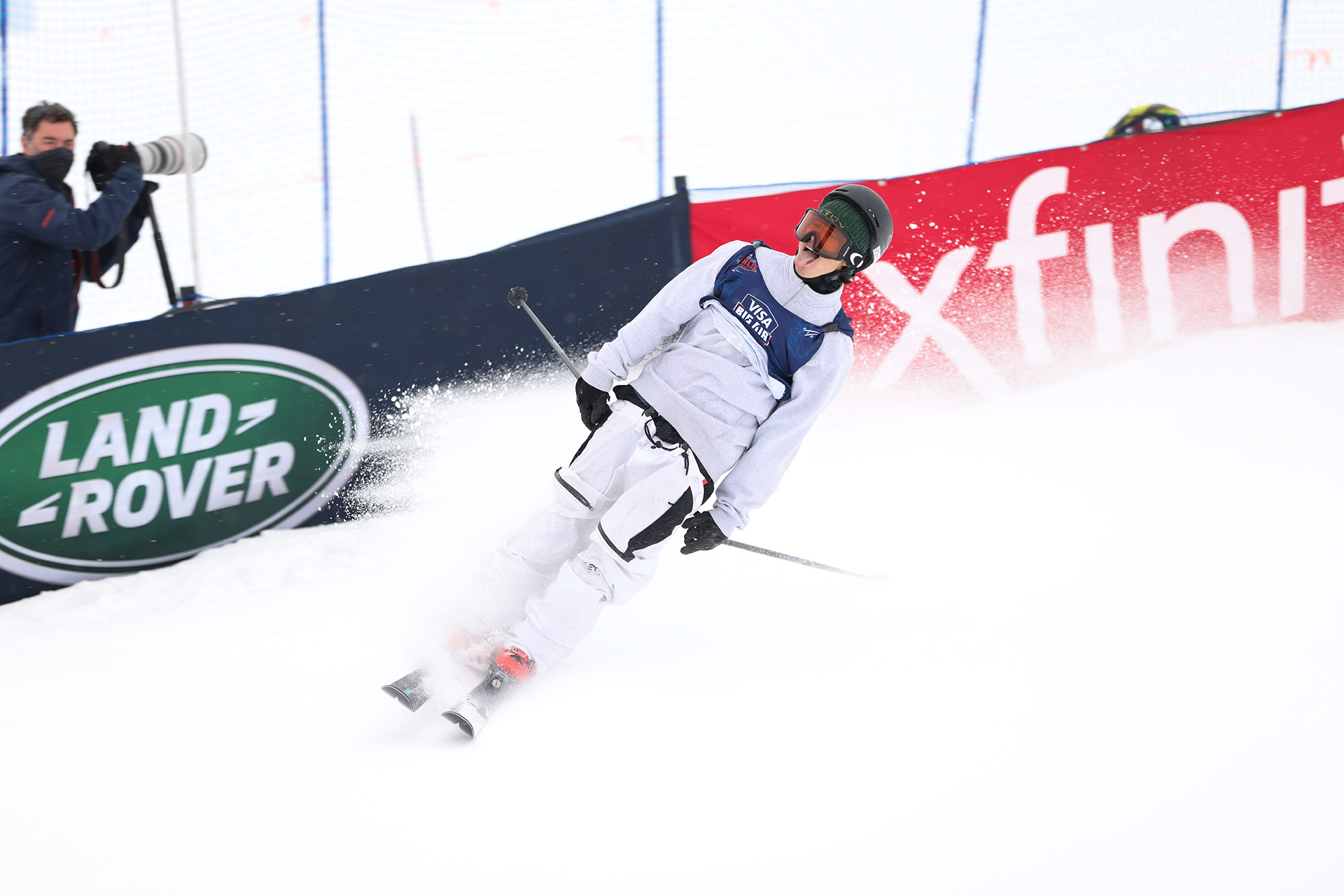
Edouard was definitely having a good time out there.
French specialist Antoine Adelisse sent his signature switch pre-nose triple 1440 waaay too deep and exploded on the landing, and Jesper Tjäder just squeaked around a forward double cork 1800 mute. Then, right on schedule, it was time for the Swiss contingent to take over the top scores: first Kim Gubser with a huge switch triple cork 1440 high Phil/ripdadank/quatro grab (we really need to settle on a name for that one), followed quickly by Andri Ragettli with a switch double bio 1800 safety, sent deep and stomped clean to move into the lead.
Evan McEachran followed with a triple cork 16 of his own and his signature double grab, but was scored low, apparently for the grab duration and not-quite-perfect landing. Mac Forehand landed the swaggiest trick yet, a double cork 16 cuban to japan, and Alex Hall crashed on a switch dub 18. Sweden’s Oliwer Magnusson closed out the first run on a high note with a huge, perfectly stomped double cork 1800 tail—the cleanest and best executed trick yet—vaulting into the lead with a massive score of 94.25, and even earning some props from Henrik Harlaut in the finish corral. After a whirlwind round 1, Magnusson held the lead, ahead of the Swiss duo of Ragettli and Gubser.
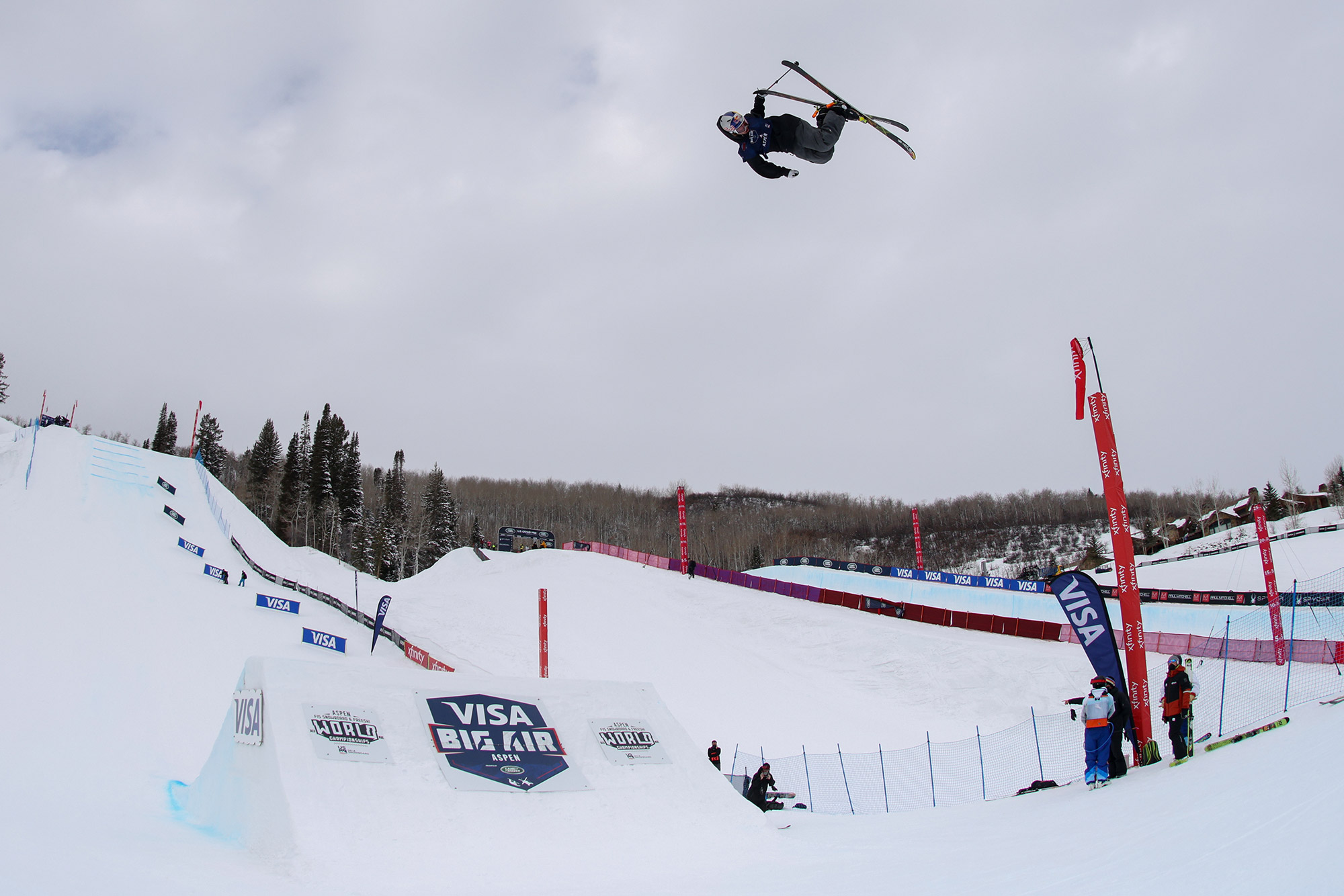
Mac Forehand´s laced-up double 16 cuban to japan was a sight for sore eyes.
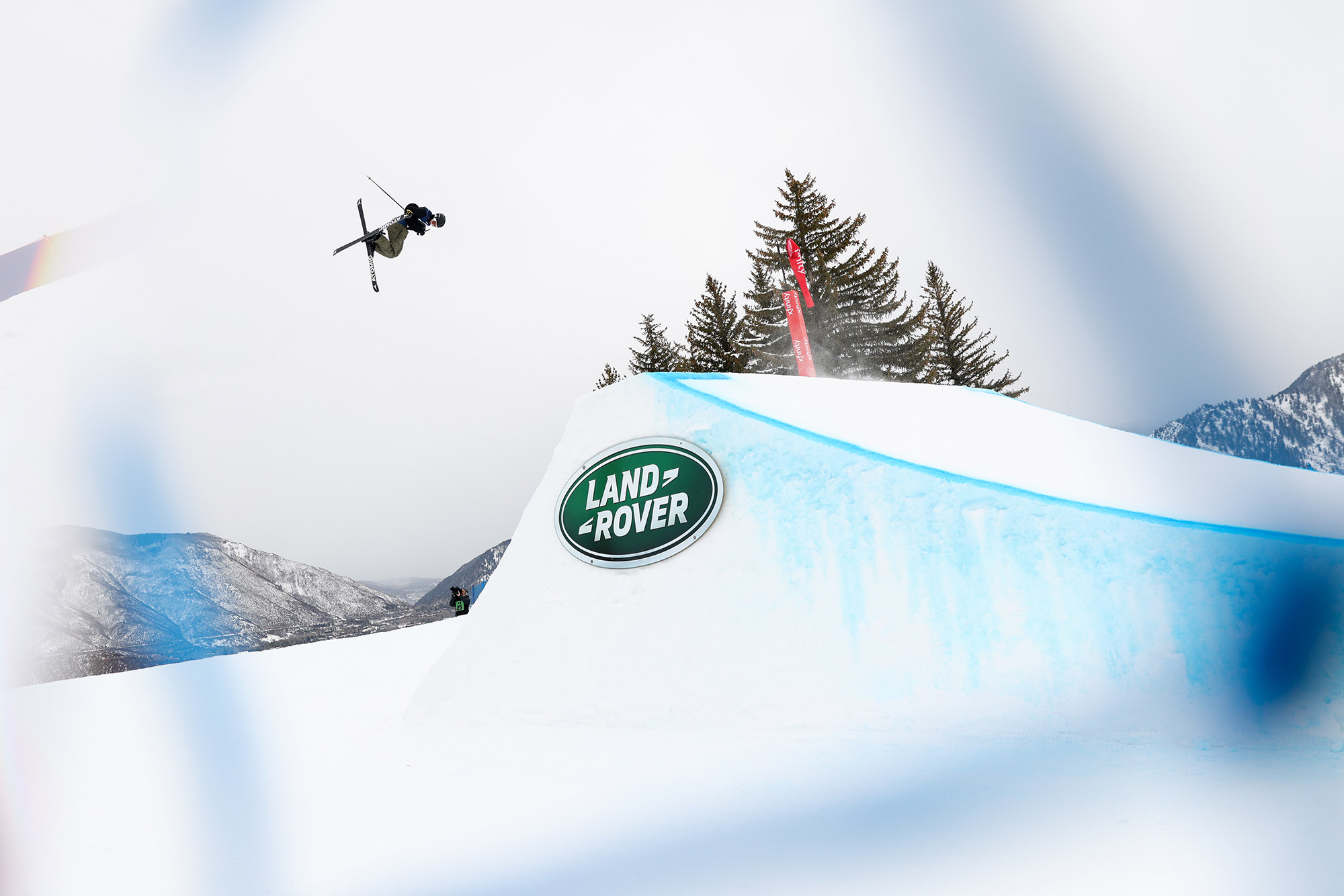
Oliwer Magnusson´s blunted double 1800 was the most flawlessly executed trick of the contest.
On Jump 2, Magnin couldn’t hold his switch triple to 10, and went 12, but got a higher score from the judges anyway (please, make it make sense). Schjerve was able to land his double 18 tail clean to stay in contention, and Therriault stomped another big hit, a switch double bio 16 safety—although it looked like he wanted the 18. Adelisse crashed again on his switch trip to cancel his podium chances, and Tjäder went down on a switch double 16 sent too deep.
Going too deep turned out not to be an issue for Kim Gubser, who stomped a monster triple 1620 far beyond where anyone should be landing to overtake the lead. Ragettli, going no poles, followed up with a stunning triple cork 1800 mute that he overrated and took to 1980. McEachran toned down his triple 16 with a mute grab rather than a double grab to post a respectable 88.25, Forehand crashed on a switch 18 attempt, and Alex Hall jumped back into the running with a huge stomp on a switch dub 18 of his own—grabbed Buick, of course. Looking to push his advantage, Magnusson went dub 18 tail again, this time switch, stomping clean but just a bit loose, to cling on to a narrow lead ahead of Gubser.
After 2: Magnusson still ahead by less than 2 points, Gubser in second with two whopping triples, and Therriault looking hungry in third.
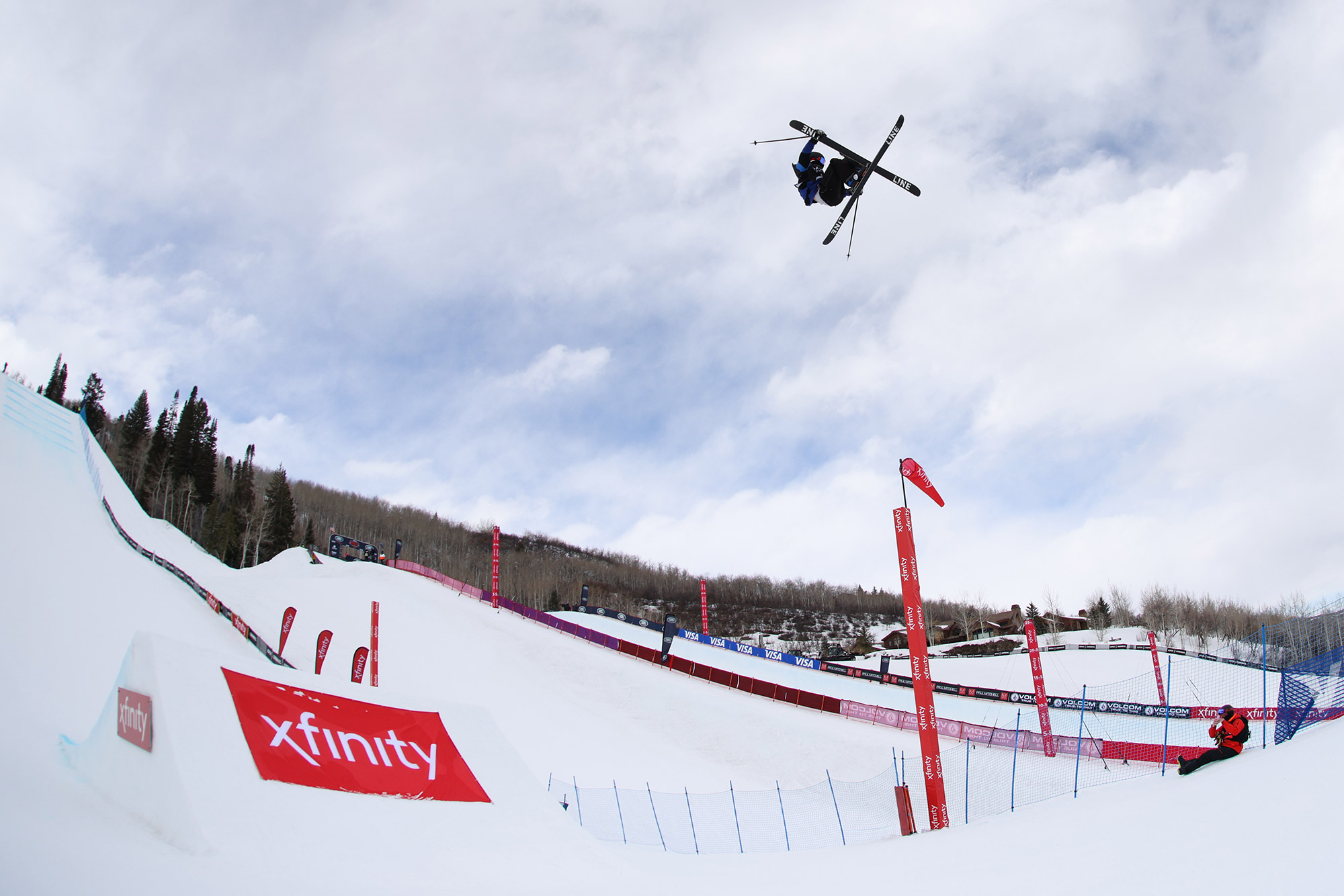
Kim Gubser sent his beautiful leftside carve triple cork 1620 mute consistently to the bottom of the landing.
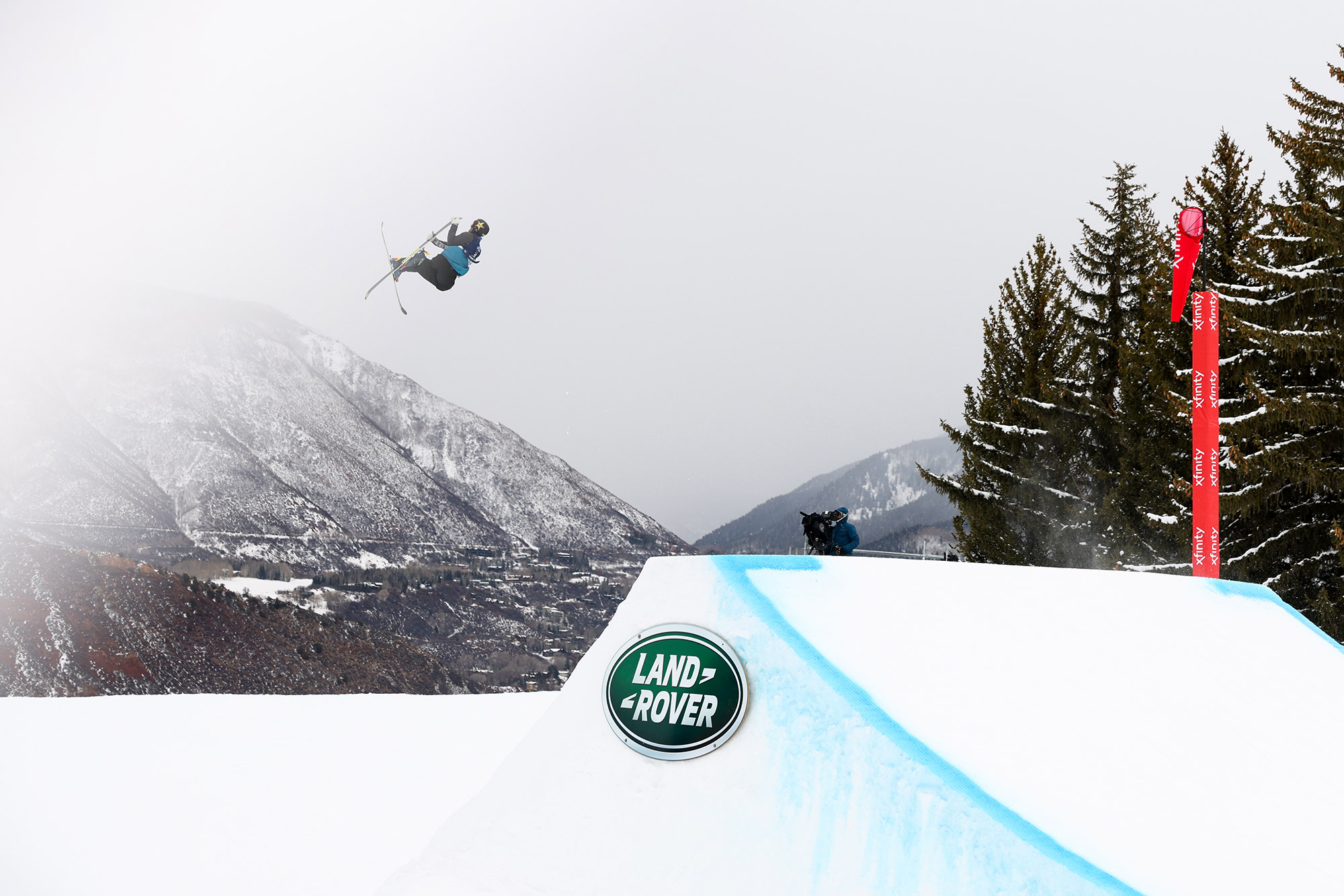
A-Hall enters the chat with a switch dub 18 Buick. Geez bro, can´t you learn a new grab?
Third jump, this one for all the marbles, with riders dropping in reverse order. After two crashes and with the pressure off, Adelisse finally stomped his signature pre-nose switch triple—too little, too late for the Frenchman. Magnin put down a dub bio 16 safety, but didn’t have much to build on after his earlier scores. A-Hall let go of his grab early on a double 16; is it finally time for him to retire the Buick and start grabbing something different?
Schjerve opted for a double bio 1800 mute but landed backseat. McEachran took a switch dub 1800 tail to the very bottom, stomping like a boss for a big score of 90.5 to move into third place, and Tjäder crashed again on his switch dub 16.
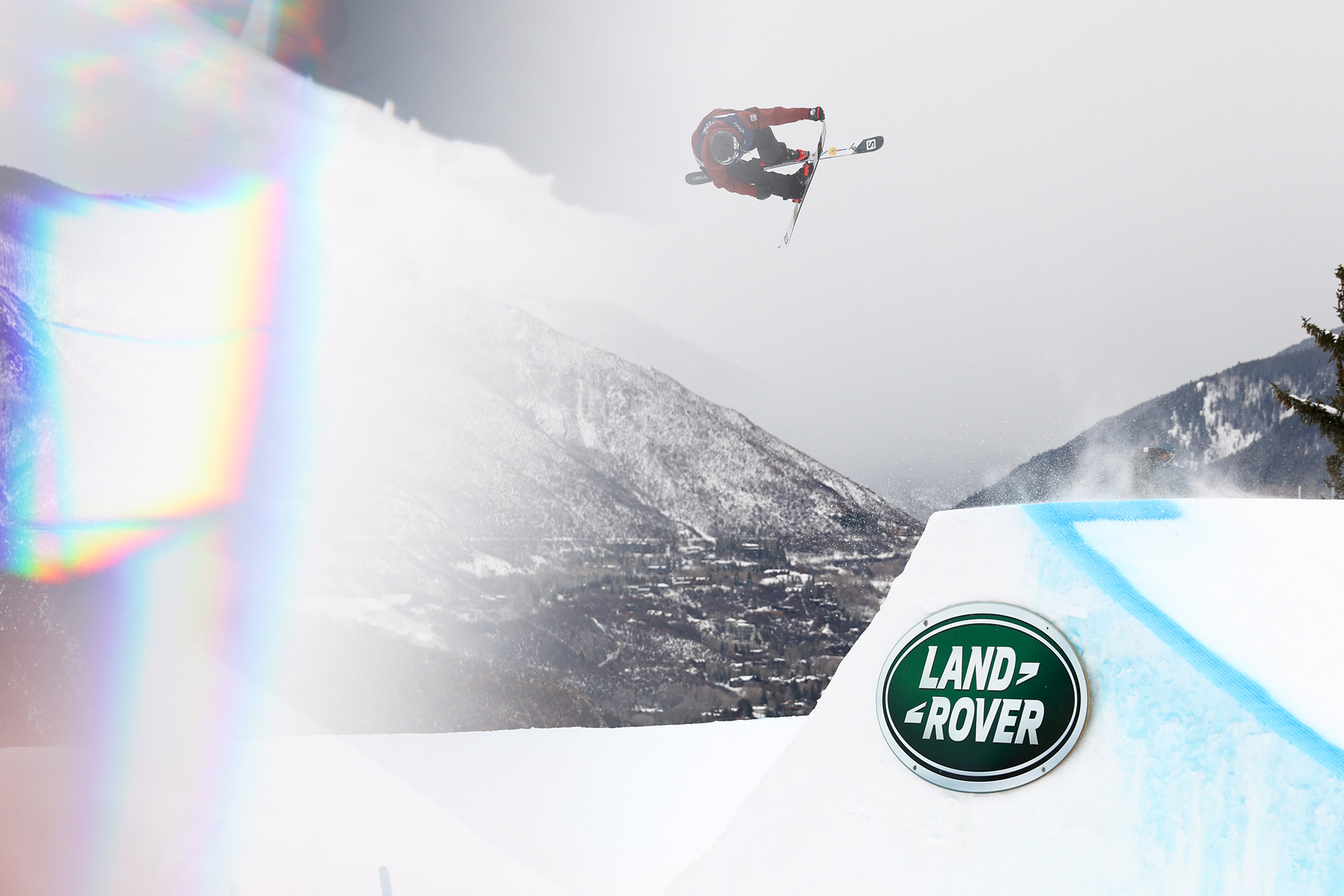
A trick he stomped flawlessly all last season, the switch pre-nose triple proved to be a challenge for Antoine Adelisse in the finals.
Mr. Swagger himself, Mac Forehand went for broke with a forward double 1800 mute and stomped clean, sliding into third and bumping McEachran from the podium. Ragettli, now sitting in sixth place, went for the triple 1980 again but took a hard crash, tweaking his knee—a disappointing end to a big week for the ambitious Swiss rider.
With three riders left in the start gate, Edouard Therriault decided to send the single biggest trick of the event: a switch double bio 1800 safety to the very bottom of the landing, stomping in a place where nobody has any business stomping anything, and launching himself into the lead. But it was short-lived; after Gubser couldn’t land his triple 16 clean, Oliwer Magnusson was back up and swinging with another switch double 1800 tail, cleaner than before, to clinch back the gold medal from the hungry young Canadian.
The final standings after a monstrous throwdown: Magnusson on top with forward and switch 1800s, Thierriault a well-deserved second, Gubser in third, and Forehand on the outside looking in.

The men´s podium: Oliwer Magnusson, Edouard Therriault, Kim Gubser.
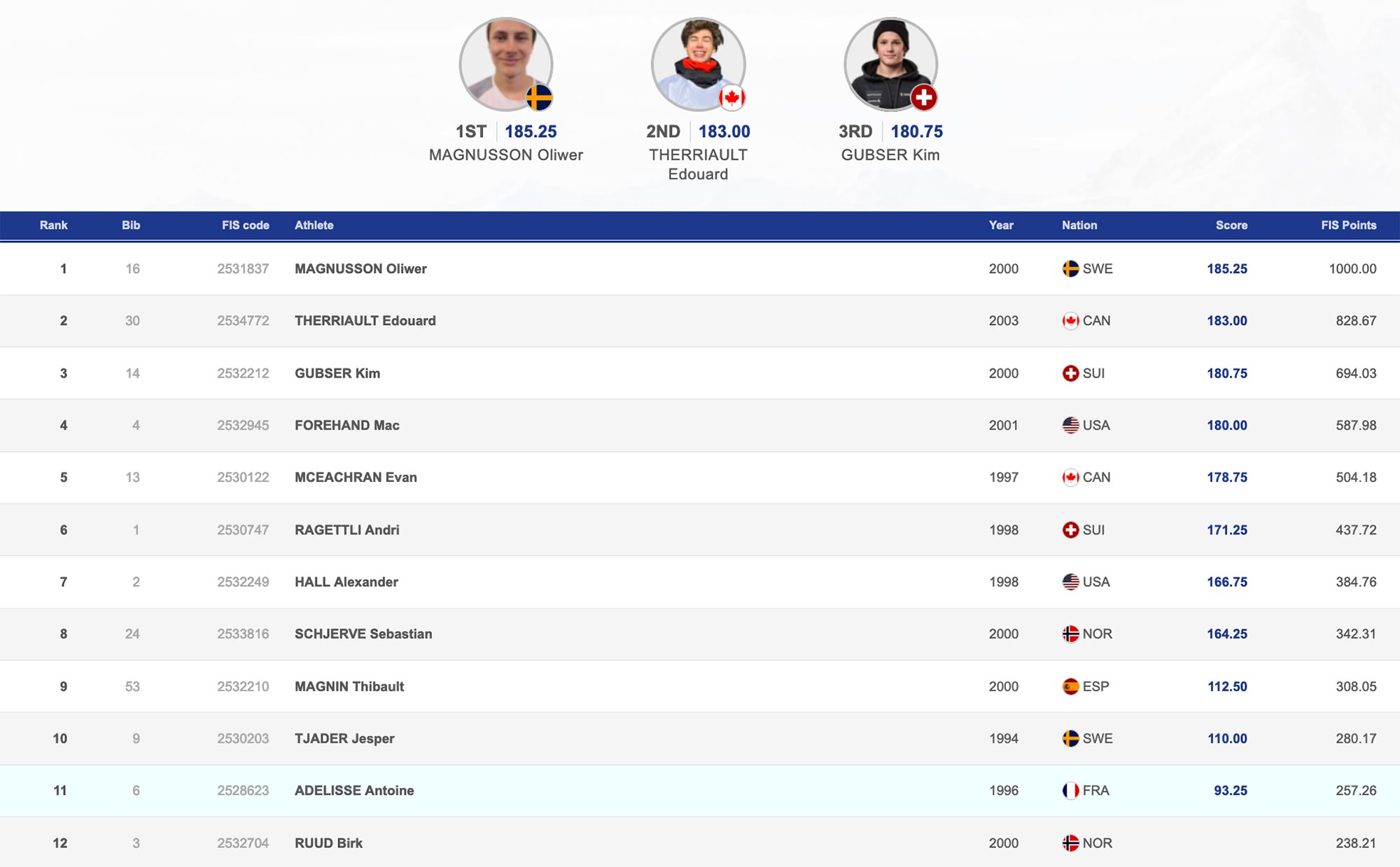
Gold: Oliwer Magnusson

Silver: Edouard Therriault

Bronze: Kim Gubser

Final outlook on the absolute state of Ski Big Air at the moment: for the men, if you’re not doing triples or 1800s to the extreme bottom of the landing, you can forget about it. On the menu next year: 1980s, 2160s and quads. For the women: the double 12 is now the gold standard. Look for the ladies to go above and beyond this baseline in future contests.